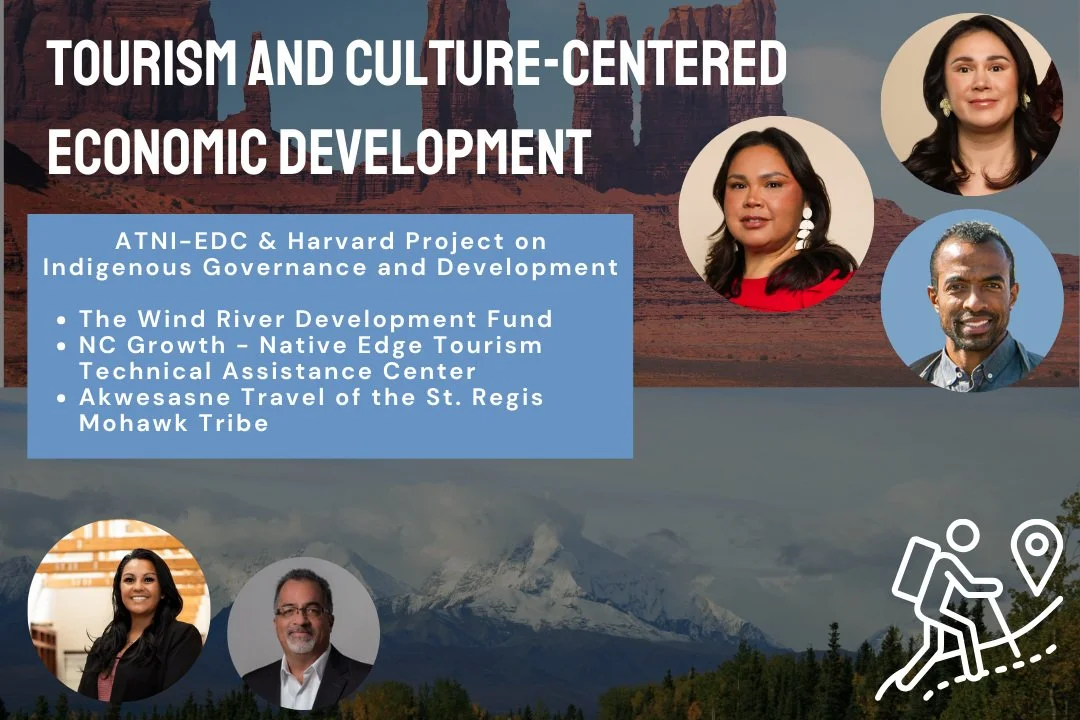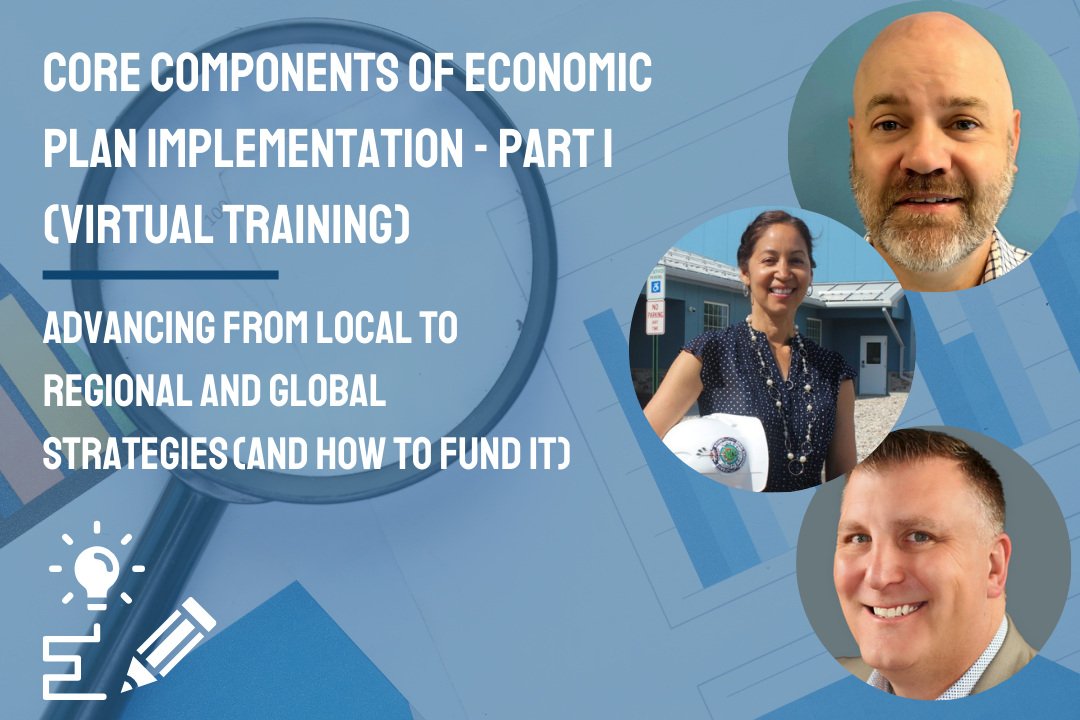

How The Yakama Nation Is Using Traditional Stewardship to Increase Jobs and Build Wealth
The people of the Yakama Nation has had a deep connection to the forest and their land for countless generations. The nation is utilizing their traditional ways to advance community economic development through conservation, selling timber, and educational advancement. The nation is creating jobs, advancing the nation’s economic capacity, and providing educational opportunities for their members.

How the Ute Mountain Ute Tribe is Advancing Food Sovereignty Efforts and Fixing Food Desert
The Ute Mountain Ute Tribe (UMUT) known as the Weenuche Band of The Ute Nation, based in Towaoc, Colorado, has over 2,000 tribal members and is advancing food sovereignty and entrepreneurship. The Tribe will create a market that will provide healthy food options to locals and advance job opportunities.

Pascua Yaqui Tribe is Uplifting Construction Jobs with New Workforce Development Center
The Pascua Yaqui Tribe established the Pascua Yaqui Development Corporation (PYDC) to diversify and strengthen the Tribe’s economy. Now the PYDC is continuing that mission by investing more into trade jobs and training. The PYDC has been granted $4 Million to support workforce development at the Pascua Yaqui Reservation and surrounding community.
This session addressed how natural resource conservation and management and environmental adaptation and resilience strategies that guide community economic development activities enable tribes and Native communities to examine economic development through the lens of sustainability and cultural appropriateness.
This session is the second installment in this 3-part training series and will describe approaches that tribal business entities, small business owners, and entrepreneurs can use as borrowers to cultivate relationships with lenders and investors to support economic development.
This CoP session focused on the development of infrastructure as a precursor to a wide range of economic development activities. It featured three SME panelists representing a federal agency, a tribe in the process of expanding their water infrastructure, and an organization that supports the development of self-determined efforts of tribes to transition towards clean energy systems.
This session provides a non-exhaustive list of funding sources and the eligible uses and combinations of these sources as well as training on how to advance economic development through external borrowing/financing of activities (as opposed to purely grant-funded approaches) during the development and implementation of financing plans.
This session featured a panel of experts who work for tribal and Native organizations that operate food sovereignty programs or are actively developing Native food systems in collaboration with Native producers, restaurateurs, schools, and providers of food assistance programs and/or who provide grants, loans, financing and technical assistance in support of these activities.
Many tribal and Native economic development plans are never fully implemented. This section will focus on the critical shift from planning to plan implementation. It will cover the timing and sequencing of coordinated and diversified economic development activities . It will also cover how to turn loose planning partnerships into solid development partnerships.
Broadband and telecommunications, are sectors that represent areas of significant infrastructural need with tribal and Native lands, provide tremendous current opportunities for significant funding, and offer fertile ground for new partnerships with non-Native entities and governments.
This in-person training at the 2024 NAIHC Legal Symposium in Las Vegas underscores the foundational elements of economic development and provided strategies for developing each of these specific elements. This training covered:
Workforce Development and Housing as Economic Development
Building Entrepreneurial Ecosystems
This virtual training introduced participants who are entering or considering an economic development planning process to its core components. Participants learned about the key internal and external actors, the process’s timeline and duration, the data required, and critical outcomes.
This session discussed strategic planning for indigenous tourism development, an intro to ATNI-EDC and Harvard Project on Indigenous Governance and Development, and highlighted tourism projects across Indian Country such as:
The Wind River Development Fund
NC Growth - Native Edge Tourism Technical Assistance Center
Akwesasne Travel of the St. Regis Mohawk Tribe
This first section of the track underscores the foundational elements of economic development plan implementation, including a qualified workforce/labor pool, an entrepreneurial ecosystem, and the primary infrastructure necessary to support economic activities.
This session featured the presentation of two unique funding mechanisms for supporting community economic development in tribal and Native communities, including Section 105(l) leases and Treasury’s State Small Business Credit Initiative (SSCBI), as well as an introduction to some useful tools and Resources the EDA offers for underserved communities
The first training in the CoP’s 9-part series of a variety of topics across Indian Country. Cris Gastner and Kevin Klingbeil from Big Water Consulting led a discussion and exercises about the foundations and essential components of CED in Indian Country and an introduction to CED planning.
The discussion centered around how project leaders identified a need for the facilities in their communities, how they secured funding, and the impacts the health centers will have and are having on community economic development. Experts also discussed how the 105(l)-lease program can help fund and support Native health centers.
The August CoP session featured a panel of grant experts who discussed strategies for writing successful grants and attracting other capital, common mistakes and other barriers to the grant writing process, and opportunities to reduce or eliminate barriers.
This session featured a panel of data experts who shared their experience working with and collecting new tribal and Native economic data.
As tribes work on projects to grow and improve their communities, it is essential that all the various sectors of community economic development are involved in the conversation together through a holistic planning process.
The session featured a panel discussion on the impacts of energy projects on tribal and Native lands. Our panelists Kenneth Ahmann, Ken Stock, and Wendolyn Holland shared a wealth of expertise and insight into the importance and timeliness of the energy sector and its impact on community economic development.
During this monthly session SMEs discussed the barriers to and the benefits of tribal citizen entrepreneurship. A lack of financial literacy, limited access to capital, and inconsistent rules & regulations have made it difficult for tribal citizens to start business ventures.
Over 90 people attended the session from across the country, including from Alaska and Hawaii. Participants came from tribal enterprises, tribal planning departments, Native CDFIs, state and federal agencies, academia, regional tribal associations, and more. Attendees reported a range of experience with EDA grants.
Related: Entrepreneurship Resources
The Suquamish Indian Tribe of the Port Madison Indian Reservation provides an example of advancing self-determination and economic development while maintaining traditional practices by creating the Suquamish Seafood Enterprises (SSE).
The people of the Yakama Nation has had a deep connection to the forest and their land for countless generations. The nation is utilizing their traditional ways to advance community economic development through conservation, selling timber, and educational advancement. The nation is creating jobs, advancing the nation’s economic capacity, and providing educational opportunities for their members.
The New Mexico Tribal Entrepreneurship Enhancement Program (NMTEEP) seeks to create broader opportunity, wealth and job growth through enhancing entrepreneurship in tribal communities throughout New Mexico.
The Department’s Economic Development Administration (EDA) is awarded a $3.3 million grant to the Seminole Tribe of Florida, Inc., Hollywood, Florida, to support business expansion plans by renovating the Brighton Reservation Trading Post.
The Catawba Nation based in South Carolina has created the Catawba Digital Economic Zone (CDEZ). The CDEZ is a sovereign regulatory zone and the first jurisdiction within the United States created for digital entrepreneurs.
Quinault Indian Nation has had a deep connection to the ocean and ocean life for countless generations. Today, the nation and its members are using their natural resource and traditions for economic growth.
Economic Development Administration (EDA) has awarded a $1 million grant to the Rosebud Economic Development Corporation, Mission, South Dakota, to support planning, design, and engineering for the Sicangu Co Innovation Center.
This report explores the challenges faced by entrepreneurs and small business owners in rural and Native communities, where essential resources and support are often limited.































The session featured a discussion of topic-driven member-led committees and a presentation from Dustin Goslin of Mille Lacs Corporate Ventures.